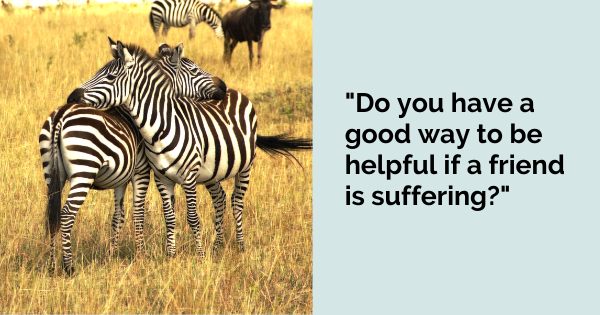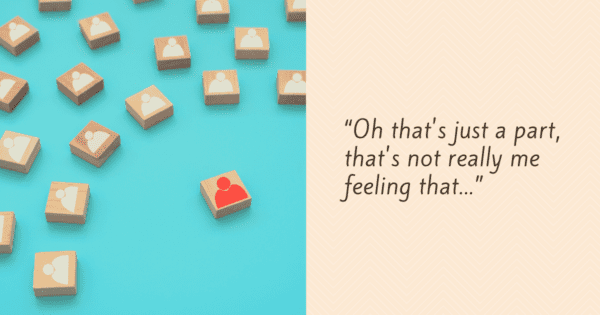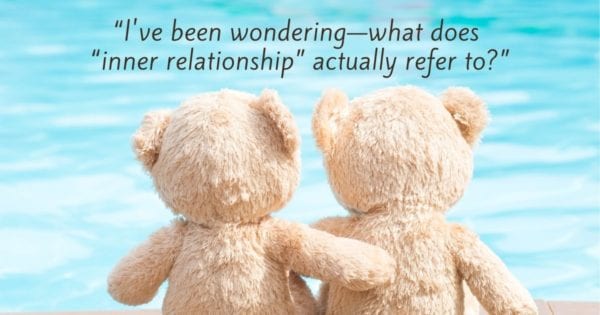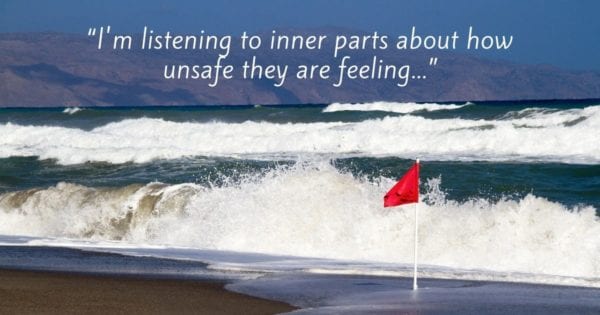How do you express sympathy for a person having a hard time without getting them even more upset? Read on…
A Reader writes:
I nearly lost a friend recently because I expressed my sympathy in the “wrong” way. I was just trying to help but I guess she heard it as some kind of criticism and pushed back on me.
We got past it, but I’m wondering… do you have a good way to be helpful if a friend is suffering?
Dear Reader:
The impulse to be helpful comes from a loving place in you. But that doesn’t mean it will be experienced that way by the other person — as you have discovered!
What I’ve learned (the hard way!) is that the suffering of other people needs the same thing as the suffering inside ourselves: To be heard and accompanied just as it is. Anything else is experienced as someone trying to “fix” me.
I grew up with a mom who was a Fixer. She was the nicest, most loving person in the world. But she didn’t know how to say to me what I really needed to hear when I was sad or troubled:
“That sounds really hard. And I’m here.”
Instead, she would say things to try to help me feel better, like, “Look on the bright side.” Or she would think of solutions for me, like: “Why don’t you try…?”
The result? I grew up without a good relationship with my own feelings, because it seemed that my feelings were toxic to my mother. She couldn’t just say, “Yes, that’s how you feel. I hear that, and it sounds hard.”
Learning Focusing was a life-saver for me because I learned to treat my own feelings as they had always needed to be treated.
Even though I’d learned not to fix my own feelings, it was my friend Judy Hart who woke me up to how important it is not to try to fix other people’s feelings.
Surviving cancer treatment, she told me how she was sitting in a hospital waiting room one day, wary about the other patients waiting with her because she didn’t want one more person to tell her to “look on the bright side.”
Instead, a fellow cancer patient smiled wryly at her and remarked, “It sucks, doesn’t it?” Judy felt so understood by that that she wrote an article with that title to share her experience.
You might not want to use that same language… but when you’re a friend to someone who is suffering, try saying something like, “I really get that it’s hard. And I am here with you.”
And when you get in touch with “something in you” that is suffering? Those same words are perfect.








